8 sept 2018
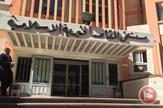
The United States announced, on Saturday, that it will cancel $20 million in aid to Palestinian hospitals of occupied East Jerusalem.
A US State Department Official told Israeli news outlet Haaretz the decision against the hospitals is part of the administration's broader approach of cutting Palestinian aid and investing it in other priorities.
The decision comes weeks after the US had announced that it will cut all funds to the United Nations Relied and Aid Agency (UNRWA) and the cut of $200 million for economic and social projects for the Palestinians.
Haaretz reported that "the budget cut could cause harm to at least five hospitals in East Jerusalem, including Augusta Victoria hospital near Mt. Scopus and the St. John Eye Hospital, which is the main provider of eye treatments for Palestinians in the West Bank and East Jerusalem."
"There was indication of the influence of Christian groups supporting these hospitals earlier this year, when congress approved the Taylor Force Act, which put severe restrictions on U.S. funding for Palestinians."
Addressing a conference of Jewish leaders in the US on Thursday, President Donald Trump admitted that his goal is to use US funds to get the Palestinians to surrender to his terms.
US President Donald Trump said, on Thursday, that the aid cut decision was to pressure Palestinians to return to UN-led negotiations with Israel.
"I told them, we're not paying you until we make a deal. If we don't make a deal, we're not paying."
Dave Harden, a former U.S. official who was in charge of USAID in the West Bank, warned, on Friday, that the decision could lead to the "collapse" of Augusta Victoria hospital.
Augusta Victoria and other East Jerusalem hospitals not only serve the Palestinian population of the city, but also Palestinians from Gaza and the West Bank, including cancer patients and children.
A US State Department Official told Israeli news outlet Haaretz the decision against the hospitals is part of the administration's broader approach of cutting Palestinian aid and investing it in other priorities.
The decision comes weeks after the US had announced that it will cut all funds to the United Nations Relied and Aid Agency (UNRWA) and the cut of $200 million for economic and social projects for the Palestinians.
Haaretz reported that "the budget cut could cause harm to at least five hospitals in East Jerusalem, including Augusta Victoria hospital near Mt. Scopus and the St. John Eye Hospital, which is the main provider of eye treatments for Palestinians in the West Bank and East Jerusalem."
"There was indication of the influence of Christian groups supporting these hospitals earlier this year, when congress approved the Taylor Force Act, which put severe restrictions on U.S. funding for Palestinians."
Addressing a conference of Jewish leaders in the US on Thursday, President Donald Trump admitted that his goal is to use US funds to get the Palestinians to surrender to his terms.
US President Donald Trump said, on Thursday, that the aid cut decision was to pressure Palestinians to return to UN-led negotiations with Israel.
"I told them, we're not paying you until we make a deal. If we don't make a deal, we're not paying."
Dave Harden, a former U.S. official who was in charge of USAID in the West Bank, warned, on Friday, that the decision could lead to the "collapse" of Augusta Victoria hospital.
Augusta Victoria and other East Jerusalem hospitals not only serve the Palestinian population of the city, but also Palestinians from Gaza and the West Bank, including cancer patients and children.
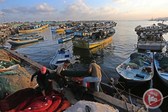
Israeli war boats opened fire at Palestinian fishermen off the coast of Beit Lahiya in the northern besieged Gaza Strip, on Saturday morning.
Witnesses told a Ma'an reporter that the Israeli navy opened fire at Palestinian fishermen working inside the allowed fishing zone.
No injuries or detentions were reported.
Meanwhile, Israeli forces deployed at military towers in the Khuzaa village of eastern Khan Younis, in the southern Gaza Strip, opened fire at Palestinian farmers working in their lands in the area.
Farmers were forced to leave their lands in fear for their lives.
The Israeli army regularly detains and opens fire on unarmed Palestinian fishermen, shepherds and farmers along the border areas if they approach the unilaterally declared buffer zone.
As part of Israel's blockade of the coastal enclave since 2007, the Israeli army, citing security concerns, requires Palestinian fishermen to work within a limited "designated fishing zone," the exact limits of which are decided by the Israeli authorities and have historically fluctuated.
Witnesses told a Ma'an reporter that the Israeli navy opened fire at Palestinian fishermen working inside the allowed fishing zone.
No injuries or detentions were reported.
Meanwhile, Israeli forces deployed at military towers in the Khuzaa village of eastern Khan Younis, in the southern Gaza Strip, opened fire at Palestinian farmers working in their lands in the area.
Farmers were forced to leave their lands in fear for their lives.
The Israeli army regularly detains and opens fire on unarmed Palestinian fishermen, shepherds and farmers along the border areas if they approach the unilaterally declared buffer zone.
As part of Israel's blockade of the coastal enclave since 2007, the Israeli army, citing security concerns, requires Palestinian fishermen to work within a limited "designated fishing zone," the exact limits of which are decided by the Israeli authorities and have historically fluctuated.
7 sept 2018
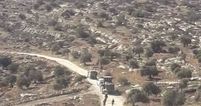
Israeli occupation forces (IOF) on Friday afternoon demolished a Palestinian waste recycling plant in Awarta town, south of Nablus city in the West Bank.
Local sources told the PIC reporter that an Israeli bulldozer entered the town and started the demolition under the protection of IOF soldiers.
The sources said that the IOF later closed the entrance leading to the demolished waste recycling plant and imposed tightened security measures preventing Palestinian citizens from approaching the farmlands adjacent to the site.
Local sources told the PIC reporter that an Israeli bulldozer entered the town and started the demolition under the protection of IOF soldiers.
The sources said that the IOF later closed the entrance leading to the demolished waste recycling plant and imposed tightened security measures preventing Palestinian citizens from approaching the farmlands adjacent to the site.
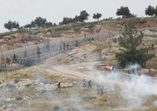
Israeli soldiers attacked, Friday, the weekly nonviolent protest against the Annexation Wall and colonies in Bil’in village, west of the central West Bank city of Ramallah, causing several injuries, and burning many olive trees.
The procession started from the center of the village when dozens of Palestinians, Israeli and international peace activists marched towards the Annexation Wall, isolating the villagers from their orchards, near Abu Lemon area.
They chanted against the ongoing illegal Israeli occupation and its illegal colonies, in addition to condemning the so-called “Deal of the Century.”
They carried Palestinian flags and marched chanting for national unity, and ongoing resistance until liberation and independence, the release of all detainees and the Right of Return of the refugees.
Several protesters managed to reach the iron gate of the Annexation Wall, and started banging on it in addition to writing graffiti calling for liberty and independence, while the soldiers, stationed at military towers and on hilltops filmed them.
The army also fired many gas bombs and concussion grenades at the protesters and the orchards, causing many to suffer the effects of teargas inhalation, and burning trees before Palestinian firefighters rushed to extinguish it.
Rateb Abu Rahma, the coordinator of the Popular Committee against the Wall and Colonies in Bil’in, called for extensive solidarity with the villages of al-Khan al-Ahmar Bedouin Palestinian community near Jerusalem, facing displacement, yet again, due to Israel’s illegal colonialist activities.
The procession started from the center of the village when dozens of Palestinians, Israeli and international peace activists marched towards the Annexation Wall, isolating the villagers from their orchards, near Abu Lemon area.
They chanted against the ongoing illegal Israeli occupation and its illegal colonies, in addition to condemning the so-called “Deal of the Century.”
They carried Palestinian flags and marched chanting for national unity, and ongoing resistance until liberation and independence, the release of all detainees and the Right of Return of the refugees.
Several protesters managed to reach the iron gate of the Annexation Wall, and started banging on it in addition to writing graffiti calling for liberty and independence, while the soldiers, stationed at military towers and on hilltops filmed them.
The army also fired many gas bombs and concussion grenades at the protesters and the orchards, causing many to suffer the effects of teargas inhalation, and burning trees before Palestinian firefighters rushed to extinguish it.
Rateb Abu Rahma, the coordinator of the Popular Committee against the Wall and Colonies in Bil’in, called for extensive solidarity with the villages of al-Khan al-Ahmar Bedouin Palestinian community near Jerusalem, facing displacement, yet again, due to Israel’s illegal colonialist activities.
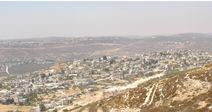
Israeli occupation forces banned on Friday morning Palestinian farmers from entering their olive groves near Israel’s illegal settlement outpost of Ariel, north of Salfit province.
Eye-witnesses said Israeli security guards forced Palestinian farmers out of the area on claims that they do not hold permits to enter their cultivated lands.
Researcher Khaled Maali said Palestinian farmers across Salfit are often prevented by the Israeli military and settler gangs from reaching their olive groves to irrigate their full-grown trees in anticipation of the olive-picking season.
Eye-witnesses said Israeli security guards forced Palestinian farmers out of the area on claims that they do not hold permits to enter their cultivated lands.
Researcher Khaled Maali said Palestinian farmers across Salfit are often prevented by the Israeli military and settler gangs from reaching their olive groves to irrigate their full-grown trees in anticipation of the olive-picking season.
6 sept 2018
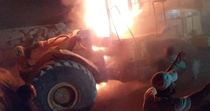
A group of Jewish settlers on Thursday set fire to construction equipment in the village of Jaloud, to the south of Nablus in the occupied West Bank.
The local official Ghassan Daghlas affirmed that settlers from Esh Kadosh outpost set ablaze large amounts of wood used for construction purposes in the village.
The arson attack comes as part of a series of attacks by Jewish settlers against Palestinians and their properties in the village, he said.
Settlers’ attacks usually go unpunished by the Israeli occupation authorities.
The local official Ghassan Daghlas affirmed that settlers from Esh Kadosh outpost set ablaze large amounts of wood used for construction purposes in the village.
The arson attack comes as part of a series of attacks by Jewish settlers against Palestinians and their properties in the village, he said.
Settlers’ attacks usually go unpunished by the Israeli occupation authorities.
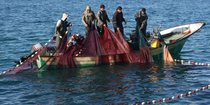
Israeli navy ships opened fire, on Thursday morning, at several Palestinian fishing boats in the northern part of the Gaza Strip.
Eyewitnesses said the navy fired any live rounds at the fishing boats in Palestinian territorial waters, near the shore of northern Gaza.
They added that the fishermen had to sail back in fear of further Israeli escalation, without being able to fish and provide for their families.
In related news, the soldiers fired live rounds at Palestinians on their lands, in the eastern part of the Gaza Strip.
Eyewitnesses said the navy fired any live rounds at the fishing boats in Palestinian territorial waters, near the shore of northern Gaza.
They added that the fishermen had to sail back in fear of further Israeli escalation, without being able to fish and provide for their families.
In related news, the soldiers fired live rounds at Palestinians on their lands, in the eastern part of the Gaza Strip.
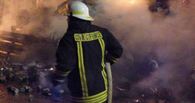
Israeli settlers late on Wednesday evening set fire to Palestinian property in Qasra village, south of Nablus, in the northern occupied West Bank.
A PIC news correspondent said Israeli settlers launched arson attacks on Palestinian lands and belongings in Qasra, sparking terror in the area.
At least 423 Israeli settlement outposts engulf Palestinian towns and communities in the occupied West Bank and Jerusalem, making up 46% of Palestinian lands.
All settlements across the West Bank are illegal under international law, particularly article 49 of the Fourth Geneva Convention, which establishes that the occupying power shall not deport or transfer parts of its own civilian population into the territory it occupies.
On July 31, 2015, settlers set fire to a house in Duma, burning Ali Dawabsha, an infant, alive. Ali’s parents, Riham, 28, and Sa'ed succumbed to their wounds weeks later. The couple’s seven-year-old son Ahmad is the only remaining survivor of the attack.
Settler violence against Palestinians and their property is routine in the West Bank and is rarely prosecuted by Israeli authorities.
Settlers' violence includes property and mosque arsons, stone-throwing, uprooting of crops and olive trees, attacks on vulnerable homes, among others.
A PIC news correspondent said Israeli settlers launched arson attacks on Palestinian lands and belongings in Qasra, sparking terror in the area.
At least 423 Israeli settlement outposts engulf Palestinian towns and communities in the occupied West Bank and Jerusalem, making up 46% of Palestinian lands.
All settlements across the West Bank are illegal under international law, particularly article 49 of the Fourth Geneva Convention, which establishes that the occupying power shall not deport or transfer parts of its own civilian population into the territory it occupies.
On July 31, 2015, settlers set fire to a house in Duma, burning Ali Dawabsha, an infant, alive. Ali’s parents, Riham, 28, and Sa'ed succumbed to their wounds weeks later. The couple’s seven-year-old son Ahmad is the only remaining survivor of the attack.
Settler violence against Palestinians and their property is routine in the West Bank and is rarely prosecuted by Israeli authorities.
Settlers' violence includes property and mosque arsons, stone-throwing, uprooting of crops and olive trees, attacks on vulnerable homes, among others.
5 sept 2018
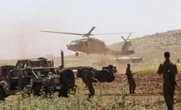
Two cows belonging to Palestinian herders in Kirbat Umm Jimal, in the northern Jordan Valley, were killed during Israeli army exercises in the area, a local official said on Wednesday.
Mutaz Bisharat, from the Tubas governor’s office, told WAFA that the two cows were apparently killed while army units were carrying exercises with live ammunition.
The army had ordered seven families in Umm al-Jimal and Al-Burj areas to leave their homes from five in the afternoon, on Tuesday, until 10 , the next morning, because the army was planning a military drill in their area.
Residents of these areas live off raising livestock and farming. The death of the two cows is expected to bring devastation to their owners.
Mutaz Bisharat, from the Tubas governor’s office, told WAFA that the two cows were apparently killed while army units were carrying exercises with live ammunition.
The army had ordered seven families in Umm al-Jimal and Al-Burj areas to leave their homes from five in the afternoon, on Tuesday, until 10 , the next morning, because the army was planning a military drill in their area.
Residents of these areas live off raising livestock and farming. The death of the two cows is expected to bring devastation to their owners.
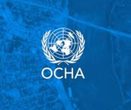
Head of the Popular Committee Against the Siege MP Jamal al-Khudari on Tuesday said that food insecurity is threatening one million refugees in Gaza as the US suspended its aid to UNRWA.
Al-Khudari in a statement called for immediate intervention to save the Gaza Strip from unprecedented deterioration in all aspects of life.
He called on the international community to take an action to keep UNRWA's services running without reductions, with the help of the UN General Assembly which mandated UNRWA to operate in Palestine, Jordan, Syria, and Lebanon.
He stressed the need for supporting UNRWA financially given the worsening humanitarian and economic situation in the Gaza Strip as a result of the 12-year-long blockade.
MP al-Khudari also called for launching new projects in Gaza in view of the high unemployment rate which has recently reached 62%.
The Palestinian official concluded by shedding light on the UN resolutions which guarantee the legitimate rights of the Palestinian people, including their right to live in dignity.
Al-Khudari in a statement called for immediate intervention to save the Gaza Strip from unprecedented deterioration in all aspects of life.
He called on the international community to take an action to keep UNRWA's services running without reductions, with the help of the UN General Assembly which mandated UNRWA to operate in Palestine, Jordan, Syria, and Lebanon.
He stressed the need for supporting UNRWA financially given the worsening humanitarian and economic situation in the Gaza Strip as a result of the 12-year-long blockade.
MP al-Khudari also called for launching new projects in Gaza in view of the high unemployment rate which has recently reached 62%.
The Palestinian official concluded by shedding light on the UN resolutions which guarantee the legitimate rights of the Palestinian people, including their right to live in dignity.
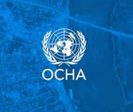
Jerusalem, 5 September 2018: The UN Office for the Coordination of Humanitarian Affairs (OCHA): This week, final stocks of emergency fuel will be delivered to critical facilities in the Gaza Strip, through the United Nations-Assisted Emergency Fuel Program.
The Humanitarian Coordinator, Jamie McGoldrick, has written to the donor community requesting immediate support for the program, which provides life-saving emergency fuel to operate standby emergency power generators at critical health centers, and water and sanitation facilities in the Gaza Strip. Funds donated thus far in 2018 have been depleted.
Life-saving services in Gaza currently depend on the UN’s delivery of emergency fuel, due to an energy crisis that leaves the two million Palestinian residents of Gaza, over half of whom are children, with only 4-5 hours of electricity from the grid per day. Based on the current electricity deficit in Gaza, a minimum of $4.5 million is required to sustain these essential services until the end of the year.
“If new funds are not received immediately, we will be facing a potentially catastrophic breakdown in essential service delivery,” said Mr. McGoldrick.
“Services provided at hospitals, clinics, as well as sewage treatment, water and sanitation facilities will cease. Some hospitals are already within a week of closing.
The most vulnerable people of Gaza, who rely on public services and have limited income sources, will be the most negatively affected.”
Hospitals in the Gaza Strip only have enough fuel to support service provision just over two weeks, in total, with some facilities at greater risk: Al Aqsa Hospital in the Middle Area of the Gaza Strip, for example, only has enough emergency fuel to sustain services for just under a week, putting the lives of over 500 vulnerable patients at risk each day.
These include patients being treated in intensive care; new-born babies in neonatal units; patients requiring emergency surgery; dialysis patients treated for kidney failure; and those needing emergency care.
More than 4,800 patients in Gaza daily require access to lifesaving or life-sustaining health care that requires a constant supply of electricity. Of these, at least 300 are connected to life-saving medical machines such as ventilators, dialysis machines, incubators and anesthetic machines, where disruption or electricity cut-out puts patients at immediate risk of brain damage or death.
Without fuel, some 300,000 people will potentially be affected by serious public health concerns as sewage could overflow onto streets. Overall, water and wastewater services are dropping to less than 20 per cent of capacity and water availability is dropping below 50 litres per capita per day, less than half of the minimum requirement according to WHO. Additionally, some essential infrastructure risks significant damage due to lack of fuel to operate key parts, with potential loss of donor investments as a result.
“The situation in Gaza is desperate. Over a decade of blockade and unresolved internal political divisions have stripped people of their rights and left over two-thirds of the population dependent on humanitarian aid,” said Mr. McGoldrick. “We can prevent a further slide into catastrophe by ensuring that essential services continue, but we need the international community to step up immediately with support to do so.”
END
For more information, please contact Mr. Ofir Feuerstein, +972 (0) 54 33 11 836, [email protected]
The Humanitarian Coordinator, Jamie McGoldrick, has written to the donor community requesting immediate support for the program, which provides life-saving emergency fuel to operate standby emergency power generators at critical health centers, and water and sanitation facilities in the Gaza Strip. Funds donated thus far in 2018 have been depleted.
Life-saving services in Gaza currently depend on the UN’s delivery of emergency fuel, due to an energy crisis that leaves the two million Palestinian residents of Gaza, over half of whom are children, with only 4-5 hours of electricity from the grid per day. Based on the current electricity deficit in Gaza, a minimum of $4.5 million is required to sustain these essential services until the end of the year.
“If new funds are not received immediately, we will be facing a potentially catastrophic breakdown in essential service delivery,” said Mr. McGoldrick.
“Services provided at hospitals, clinics, as well as sewage treatment, water and sanitation facilities will cease. Some hospitals are already within a week of closing.
The most vulnerable people of Gaza, who rely on public services and have limited income sources, will be the most negatively affected.”
Hospitals in the Gaza Strip only have enough fuel to support service provision just over two weeks, in total, with some facilities at greater risk: Al Aqsa Hospital in the Middle Area of the Gaza Strip, for example, only has enough emergency fuel to sustain services for just under a week, putting the lives of over 500 vulnerable patients at risk each day.
These include patients being treated in intensive care; new-born babies in neonatal units; patients requiring emergency surgery; dialysis patients treated for kidney failure; and those needing emergency care.
More than 4,800 patients in Gaza daily require access to lifesaving or life-sustaining health care that requires a constant supply of electricity. Of these, at least 300 are connected to life-saving medical machines such as ventilators, dialysis machines, incubators and anesthetic machines, where disruption or electricity cut-out puts patients at immediate risk of brain damage or death.
Without fuel, some 300,000 people will potentially be affected by serious public health concerns as sewage could overflow onto streets. Overall, water and wastewater services are dropping to less than 20 per cent of capacity and water availability is dropping below 50 litres per capita per day, less than half of the minimum requirement according to WHO. Additionally, some essential infrastructure risks significant damage due to lack of fuel to operate key parts, with potential loss of donor investments as a result.
“The situation in Gaza is desperate. Over a decade of blockade and unresolved internal political divisions have stripped people of their rights and left over two-thirds of the population dependent on humanitarian aid,” said Mr. McGoldrick. “We can prevent a further slide into catastrophe by ensuring that essential services continue, but we need the international community to step up immediately with support to do so.”
END
For more information, please contact Mr. Ofir Feuerstein, +972 (0) 54 33 11 836, [email protected]
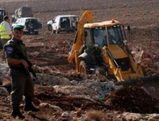
Israeli soldiers invaded, on Wednesday morning, Furush Beit Dajan village, east of the northern West Bank city of Nablus, and shut down water pipelines providing the community, and its local school, with the needed water.
Tawfiq Hajj Mohammad, the head of Furush Beit Dajan Local Council, said the pipelines are vital for the village, inhabited by around 12000 Palestinians, and for their agricultural lands, especially since most of the villagers depend in agriculture, and livestock, as the only sources in livelihood.
Dozens of locals, including schoolchildren, nonviolently marched while chanting against the escalating Israeli violations, and demanding their basic right to have running water in their community.
Several months ago, the soldiers closed water pipelines leading to the village, and alleged that the water supplies were not approved and licensed by Mekorot Israeli water company.
It is worth mentioning that Israel has been denying the Palestinians in the village from their right to build homes and structures on their lands.
Israel controls all natural resources in the occupied West Bank, including water springs and reservoirs, and provides its illegal colonies with uninterrupted water flow, while the Palestinians face frequent cut to their water service, and a lack of water resources due to Israel’s military occupation.
In related news, the soldiers confiscated, Tuesday, a mobile home owned by Ahmad Bisharat, on his land.
Tawfiq Hajj Mohammad, the head of Furush Beit Dajan Local Council, said the pipelines are vital for the village, inhabited by around 12000 Palestinians, and for their agricultural lands, especially since most of the villagers depend in agriculture, and livestock, as the only sources in livelihood.
Dozens of locals, including schoolchildren, nonviolently marched while chanting against the escalating Israeli violations, and demanding their basic right to have running water in their community.
Several months ago, the soldiers closed water pipelines leading to the village, and alleged that the water supplies were not approved and licensed by Mekorot Israeli water company.
It is worth mentioning that Israel has been denying the Palestinians in the village from their right to build homes and structures on their lands.
Israel controls all natural resources in the occupied West Bank, including water springs and reservoirs, and provides its illegal colonies with uninterrupted water flow, while the Palestinians face frequent cut to their water service, and a lack of water resources due to Israel’s military occupation.
In related news, the soldiers confiscated, Tuesday, a mobile home owned by Ahmad Bisharat, on his land.
Page: 29 - 28 - 27 - 26 - 25 - 24 - 23 - 22 - 21 - 20 - 19 - 18 - 17 - 16 - 15 - 14 - 13 - 12 - 11 - 10 - 9 - 8
